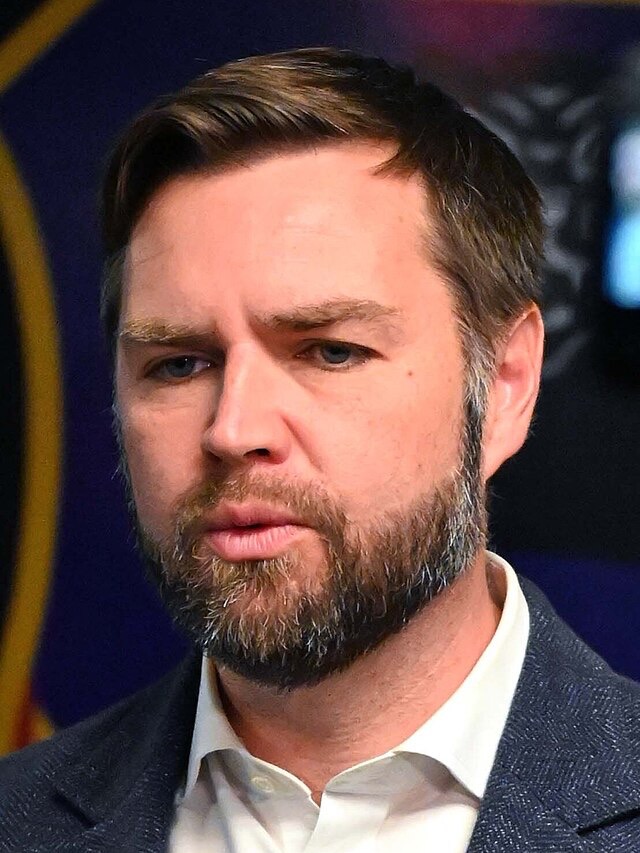In a seismic shift to global diplomacy, U.S. Vice President JD Vance has issued a blunt ultimatum to Russia and Ukraine: either agree to a peace deal—or risk losing America’s involvement in the negotiation process altogether. As chaos derails the London-hosted peace talks, Vance’s message lands like a diplomatic thunderclap, shaking the foundations of international efforts to end Europe’s most volatile conflict in a generation.
His message: “Do a deal, or the U.S. walks.”
This article breaks down what Vance said, why it matters, the backlash it’s sparked, and the profound implications this has for Ukraine, Russia, and U.S. foreign policy.
JD Vance’s Bold Statement: “It’s Time for Them to Say Yes”
Speaking from India during a state visit, JD Vance made a forceful declaration regarding the ongoing Russia-Ukraine conflict. Addressing reporters, he warned:
“It’s time for them to either say yes, or for the United States to walk away from this process.”
The Vice President argued that both Kyiv and Moscow must make territorial concessions if there’s any hope of halting the war. He referred to America’s latest peace proposal as the most “balanced and pragmatic” plan currently on the table.
This plan reportedly involves:
- Freezing the current frontlines
- Mutual renunciation of claims to certain disputed regions
- Potential recognition of Russia’s control over Crimea and parts of eastern Ukraine—if agreed upon in exchange for a permanent ceasefire
The Collapse of Peace Talks in London
Vance’s comments followed dramatic scenes in London, where peace talks—once seen as the best chance for de-escalation—began to unravel.
Here’s what happened:
- The U.S. Secretary of State Marco Rubio abruptly withdrew from the summit
- Negotiations lost momentum as Ukrainian President Volodymyr Zelenskyy rejected the latest U.S. proposal
- France and the UK expressed concern over the fracturing of Western unity
With tensions mounting and diplomatic optics spiraling, the withdrawal of the U.S. from direct talks has cast serious doubt on the future of coordinated peace efforts.
Ukraine’s Position: “Territorial Integrity is Non-Negotiable”
Ukrainian President Volodymyr Zelenskyy made his stance crystal clear: no peace plan that compromises Ukraine’s borders will be accepted. His administration reiterated:
- Ukraine demands a complete ceasefire as a precondition for talks
- Russia must withdraw from occupied territories, including Donetsk, Luhansk, and Crimea
- The U.S. plan, as it currently stands, is a non-starter
Zelenskyy’s position reflects strong national sentiment and aligns with long-held promises to restore Ukraine’s territorial integrity. However, the stark contrast between Kyiv’s demands and Vance’s proposal raises fears of a breakdown in diplomatic coherence among Ukraine’s Western allies.
Moscow’s Reaction: Strategic Silence or Calculated Leverage?
Russia has so far remained mostly non-committal, choosing not to publicly reject the U.S. offer. Kremlin insiders suggest that Vladimir Putin may see the plan as a potential opening to secure recognition of Crimea and the Donbas without further military escalation.
However, Russia continues to:
- Demand security guarantees
- Insist that sanctions be lifted
- Maintain a military presence on key frontlines
This ambiguity suggests that the Kremlin is strategically evaluating whether the U.S. pullback could give it more negotiating power—or make Ukraine more vulnerable diplomatically.
Global Repercussions: What Does This Mean for U.S. Foreign Policy?
Vance’s ultimatum signals a possible pivot in U.S. global strategy, echoing sentiments of war fatigue and rising calls for domestic prioritization. The implications are enormous:
- Signals to NATO that Washington may no longer carry the diplomatic burden
- Opens the door for China or other powers to fill the negotiation void
- Risks damaging transatlantic alliances, especially with France and Germany
Critics argue that Vance’s approach abandons Ukraine at a critical juncture. Supporters, however, claim the U.S. has spent enough money, time, and political capital—with no end in sight.
Europe’s Response: Alarm Bells Ringing in Brussels
European leaders are not hiding their unease. Behind closed doors, there’s increasing concern that:
- The U.S. is losing patience
- The unity of the West is fracturing
- The longer the conflict drags on, the more unstable Europe becomes
British Prime Minister Keir Starmer and French President Emmanuel Macron have reportedly reached out to both Moscow and Kyiv, urging continued dialogue despite the setbacks in London. Still, without strong U.S. backing, Europe’s leverage is significantly weakened.
Can Peace Still Be Salvaged?
It’s not too late—but the window is shrinking.
Peace advocates now face the daunting task of:
- Crafting a new proposal that bridges Ukrainian sovereignty and Russian demands
- Re-establishing trust between Western allies
- Preventing the conflict from entering a more dangerous, drawn-out phase
Without active U.S. leadership, the path forward becomes murkier—and the stakes, even higher.
Conclusion
Vice President JD Vance’s message to Russia and Ukraine—make a deal or we walk—marks a dramatic turning point in the war’s diplomatic dimension. With the collapse of the London peace talks and growing divisions among global powers, the road to resolution is more uncertain than ever.
This moment could define the next chapter of the conflict: will it be a step toward peace or a step toward escalation?
FAQs
Q1: What did JD Vance say about the Russia-Ukraine war?
A1: Vance urged both nations to accept a peace deal or face a U.S. withdrawal from the negotiation process, emphasizing the need for territorial concessions.
Q2: What happened to the London peace talks?
A2: Talks faltered after Secretary of State Marco Rubio withdrew, and Ukraine rejected the U.S.-backed proposal, causing diplomatic chaos.
Q3: What is Ukraine’s stance on the peace plan?
A3: President Zelenskyy insists on full territorial sovereignty and refuses to accept any agreement that legitimizes Russian occupation.
Q4: How has Russia responded?
A4: Russia has remained ambiguous but may see the U.S. stance as a strategic opportunity to push for more favorable terms.
Q5: What are the risks of U.S. withdrawal from the talks?
A5: It could weaken Western unity, embolden Russia, destabilize Ukraine, and alter the balance of power in Europe and beyond.



